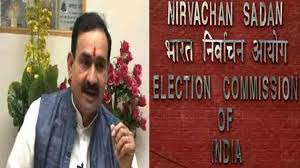THE HINDU EDITORIAL : OCTOBER 16, 2017

THE HINDU EDITORIAL : OCTOBER 16, 2017
- a) The right to read, and be read
Tributes continue to flow acclaiming the Supreme Court for its judgment delivered in Justice K.S. Puttaswamy (Retd) v. Union of India, where it recognised the existence of a fundamental right to privacy. The judgment has been hailed for its erudition, for its analytic rigour, and, more than anything else, for placing civil liberties at the heart of our constitutional discourse. But just weeks later, we’re left grappling with the court’s proclivity for illiberalism in Poojaya Sri Jagadguru Maate Mahadevi v. Government of Karnataka. On September 20, the court upheld a ban on a book without so much as considering the implications that such sanctions have on free speech. The order is the latest example in a litany of cases, going back to the court’s inception, which calls into question the commonly held notion of our highest judiciary serving as a custodian of fundamental rights. In cases such as this one, the court doesn’t see rights as trumps, but rather as abstract notions that lie at the state’s whimsical behest. Maate Mahadevi’s book, Basava Vachana Deepthi, was banned in 1998, when the State of Karnataka invoked Section 95 of the Code of Criminal Procedure (CrPC). This law allows the state to forfeit and suspend publications that it deems to be in violation of certain provisions of the Indian Penal Code (IPC). In this case, the government found that the book’s contents appeared to infringe Section 295A of the IPC, which criminalises speech that hurts religious sentiments. Needless to say, both Section 95 of the CrPC and Section 295A of the IPC are remnants of India’s colonial past, and ought to really have no place in a modern, liberal democracy.
Protecting the intolerant
Here, however, the law is only a part of the problem. The greater issue concerns its interpretation. In a just and tolerant society, one would imagine the courts would accord to rules of this kind the narrowest possible construal, allowing the greatest possible latitude to free expression. But, regrettably, the courts have distorted this vision. By refusing to interfere with the Karnataka High Court’s verdict which had upheld the ban, the Supreme Court has effectively understood Section 295A as a shield that legitimately protects the intolerant against the merest hint of inconvenient speech. In this case, Mahadevi’s book was banned purportedly because she substituted the original words in Lord Basaveshwara’s Vachanas. According to the government, she ought not to have changed the pen name of Basaveshwara from “Kudalasangamadeva” to “Lingadeva,” as such a substitution would inevitably hurt the feelings and sentiments of the “Veerashaiva” community in the State. Her actions, the government claimed, militated against Section 295A, and, therefore, the ban on her book was entirely justified. Now, the Karnataka High Court was certainly mindful of Section 295A’s language. For an offence to be committed under the provision, not only must the speech or expression in question insult or attempt to insult the religion or the religious beliefs of a class of citizens, but it must also have been made with the deliberate and malicious intention of outraging such religious feelings. Inexplicably, however, both these conditions, the court found, were met by the book. Mahadevi, the court said, had no right to “impose her philosophy on others”. “She can certainly publish a book containing her own philosophy, but certainly she cannot speak her philosophy through some other person who is held in high esteem by a particular class of society,” it wrote. “The petitioner knows full well that if she were to preach that philosophy, it may not be acceptable to all and obviously for that reason, she wants to advocate or propagate her philosophy through the mouth of Lord Basaveshwara by effecting certain changes in the Vachanas… which support her philosophy.” This supposed knowledge that her philosophy would not have otherwise been acceptable, and, therefore, that the author transmitted her own views through Basaveshwara’s name was, for the court, an indication of Mahadevi’s deliberate and malicious intent to cause religious hurt.
Free speech and tolerance
It’s certainly plausible that the contents of Basava Vachana Deepthi run counter to Basaveshwara’s Vachanas. It’s also possible that in substituting Basaveshwara’s pen name Mahadevi had violated the original author’s intentions. But should not a meaningful right to free speech come with an attendant obligation for tolerance? For the Karnataka High Court, clearly not. In its belief, speech is valuable and deserving of protection only when it bears no consequences. Religion, and religious conviction, in its view, are somehow exempt from the regular mandates of democracy. To the court, there exists a right not to be ridiculed or offended, a right that it placed on a decorated pedestal. That Mahadevi’s case is not an outlier, but that it typifies the malaise of censorship, that governments in India can ban books with such facile ease, ought to have represented good enough reason to merit the Supreme Court’s intervention. If nothing else, this was an opportunity for the court to correct its own errors made in its 2007 judgment in Sri Baragur Ramachandrappa v. State of Karnataka. There, the government had issued a notification banning Dharmakaarana, a Kannada novel written by P.V. Narayana on grounds, once again, that certain paragraphs which probed the character of Akkanagamma, the elder sister of Basaveshwara, could hurt the sentiments of the Veerashaiva community. Quite remarkably, the court found there that once the State government exercises its power to forfeit a book under Section 95 of the CrPC, the onus shifts to the author to disprove the government’s claims. What’s more, as the lawyer Gautam Bhatia has pointed out, in Offend, Shock, or Disturb: Free Speech under the Indian Constitution, in addition to the substantive concerns over Section 295A, problems also abound over the procedure contained in Section 95 of the CrPC, which allows governments to ban books on mere surmises. Under this law, as interpreted currently by the Supreme Court, the state doesn’t have to present any evidence to show that religious feelings have actually been hurt. It is sufficient if it “appears” to the government that such beliefs might be injured. A ban on a book, howsoever pernicious its contents might be, should, under any circumstances, strike the court as a matter for serious consideration. Indeed, the court recognised this, in a short order delivered on October 13, when it dismissed a petition challenging the publication of Kancha Ilaiah’s book, Samajika Smugglurlu Komatollu. “Curtailment of an individual writer/author’s right to freedom of speech and expression should never be lightly viewed,” it wrote. While this order is certainly welcome, any reasonable analysis of the court’s judgments shows us that it invariably tends to sing a different tune when faced with active bans imposed by the state, thereby shading its jurisprudence with more than a trace of caprice.
Democracy’s animating force
As Ronald Dworkin said, the preservation of individual autonomy is an essential requirement of a legitimate government. Upholding bans on books strikes at this legitimacy, at the principles of justice that are meant to fortify the republic. The court must always recognise, as it has done in Ilaiah’s case, that the right to freedom of speech is really the animating force of democracy, that it’s a liberty central to achieving an equal society. To hold otherwise, by upholding bans on books on plain conjecture, violates this vision. It allows the apparent intolerance of certain groups to trump an author’s right to free expression.
WORDS/ VOCABULARY
1) Acclaiming
Meaning: Praise enthusiastically and publicly.
Example: The conference was acclaimed as a considerable success.
Synonyms: Praise, Applaud
Antonyms: Criticize, Unsung
2) Hailed
Meaning: Hail falls.
Example: It hailed so hard we had to stop.
Synonyms: Beat, Shower
3) Erudition
Meaning: The quality of having or showing great knowledge or learning; scholarship.
Example: He was known for his wit, erudition, and teaching skills.
Synonyms: Learning, Scholarship
Antonyms: Ignorance
4) Rigour
Meaning: The quality of being extremely thorough and careful.
Example: His analysis is lacking in rigour.
Synonyms: Thoroughness, Precision
5) Grappling
Meaning: Engage in a close fight or struggle without weapons; wrestle.
Example: Passers-by grappled with the man after the knife attack.
Synonyms: Wrestle, Struggle
6) Implications
Meaning: The conclusion that can be drawn from something although it is not explicitly stated.
Example: The implication is that no one person at the bank is responsible.
Synonyms: Suggestion, Inference
Antonyms: Explicit statement
7) Inception
Meaning: The establishment or starting point of an institution or activity.
Example: She has been on the board since its inception two years ago.
Synonyms: Establishment, Institution
Antonyms: End
8) Whimsical
Meaning: Acting or behaving in a capricious manner.
Example: The whimsical arbitrariness of autocracy.
Synonyms: Volatile, Impulsive
9) Behest
Meaning: A person’s orders or command.
Example: They had assembled at his behest.
Synonyms: Instruction, Bidding
10) Invoked
Meaning: Cite or appeal to (someone or something) as an authority for an action or in support of an argument.
Example: The antiquated defence of insanity is rarely invoked in England.
Synonyms: Cite, Adduce
Antonyms: Waive
11) Forfeit
Meaning: Lose or be deprived of (property or a right or privilege) as a penalty for wrongdoing.
Example: Those unable to meet their taxes were liable to forfeit their estates.
12) Deems
Meaning: Regard or consider in a specified way.
Example: The event was deemed a great success.
Synonyms: Consider, Judge
13) Infringe
Meaning: Actively break the terms of (a law, agreement, etc.).
Example: Making an unauthorized copy would infringe copyright.
Synonyms: Contravene, Violate
Antonyms: Obey, Comply with
14) Remnants
Meaning: A part or quantity that is left after the greater part has been used, removed, or destroyed.
Example: The bogs are an endangered remnant of a primeval landscape
Synonyms: Remains, Remainder
15) Construal
Meaning: The way a person understands the world or a particular situation.
Example: A young child’s construal of a task may be different from an older child’s or an adult’s.
16) Latitude
Meaning: Scope for freedom of action or thought.
Example: Journalists have considerable latitude in criticizing public figures.
Synonyms: Freedom, Scope
Antonyms: Constraint, Restriction
17) Regrettably
Meaning: Unfortunately (used to express apology for or sadness at something).
Example: Regrettably, last night’s audience was a meagre one.
18) Interfere
Meaning: Prevent (a process or activity) from continuing or being carried out properly.
Example: A holiday job would interfere with his studies.
Synonyms: Impede, Obstruct
19) Verdict
Meaning: A decision on an issue of fact in a civil or criminal case or an inquest.
Example: The jury returned a verdict of not guilty.
Synonyms: Judgement, Decree
20) Merest
Meaning: Used to emphasize how small or insignificant someone or something is.
Example: Questions that cannot be answered by mere mortals.
Synonyms: Trifling, Bare
21) Purportedly
Meaning: As appears or is stated to be true, though not necessarily so; allegedly.
Example: The photos purportedly show Nina with a lover.
22) Pen name
Meaning: An assumed name used by a writer instead of their real name.
Example: His early work was written under the pen name of Owen Meredith.
Synonyms: Pseudonym, Alias
23) Militated
Meaning: (Of a fact or circumstance) be a powerful or conclusive factor in preventing.
Example: These fundamental differences will militate against the two communities coming together.
Synonyms: Prejudice, Resist
Antonyms: Reinforce
24) Outraging
Meaning: Arouse fierce anger, shock, or indignation in (someone).
Example: The public were outraged at the brutality involved.
Synonyms: Enrage, Infuriate
25) Preach
Meaning: Give moral advice to someone in a pompously self-righteous way.
Example: Viewers want to be entertained, not preached at.
Synonyms: Moralize, Sermonize
26) Indication
Meaning: A sign or piece of information that indicates something.
Example: The visit was an indication of the improvement in relations between the countries.
Synonyms: Sign, Indicator
27) Intent
Meaning: Intention or purpose.
Example: With alarm she realized his intent.
Synonyms: Aim, Purpose
28) Conviction
Meaning: A formal declaration by the verdict of a jury or the decision of a judge in a court of law that someone is guilty of a criminal offence.
Example: She had a previous conviction for a similar offence.
Synonyms: Sentence, Judgement
Antonyms: Acquittal
29) Exempt
Meaning: Free from an obligation or liability imposed on others.
Example: These patients are exempt from all charges.
Synonyms: Free from, Immune
Antonyms: Liable to, Subject to
30) Ridiculed
Meaning: Subject to contemptuous and dismissive language or behaviour.
Example: His theory was ridiculed and dismissed.
Synonyms: Lampoon, Chaff
31) Pedestal
Meaning: The base or support on which a statue, obelisk, or column is mounted.
Example: A bronze bust on a marble pedestal.
Synonyms: Plinth, Base
32) Facile
Meaning: Ignoring the true complexities of an issue; superficial.
Example: Facile generalizations.
Synonyms: Simplistic, Superficial
Antonyms: Thorough, Profound
33) Probed
Meaning: Explore or examine (something), especially with the hands or an instrument.
Example: Hands probed his body from top to bottom.
Synonyms: Examine, Feel
34) Substantive
Meaning: Having a firm basis in reality and so important, meaningful, or considerable.
Example: There is no substantive evidence for the efficacy of these drugs.
35) Surmises
Meaning: Suppose that something is true without having evidence to confirm it.
Example: He surmised that something must be wrong.
Synonyms: Guess, Infer
Antonyms: Know
36) Pernicious
Meaning: Having a harmful effect, especially in a gradual or subtle way.
Example: The pernicious influences of the mass media.
Synonyms: Harmful, Damaging
Antonyms: Benign, Favorable
37) Curtailment
Meaning: The action or fact of reducing or restricting something.
Example: the curtailment of human rights.
Synonyms: Reduction, Cut
Antonyms: Increase, Expansion
38) Jurisprudence
Meaning: The theory or philosophy of law.
Example: American jurisprudence.
39) Caprice
Meaning: A sudden and unaccountable change of mood or behaviour.
Example: Her caprices made his life impossible.
Synonyms: Whim, Vagary
Antonyms: Stability
40) Fortify
Meaning: Provide (a place) with defensive works as protection against attack.
Example: The whole town was heavily fortified.
Synonyms: Secure, Protect
Antonyms: Weaken






